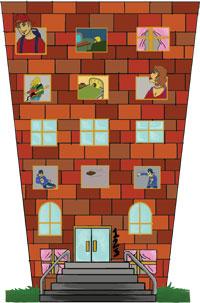Any student that attends UMass Boston knows, and hopefully knew before they applied, that it is a commuter college, meaning no on-campus housing. Though there are no dormitories, there is an Office of Student Housing.
Some may think that an office dedicated to helping UMass Boston students find places to live is pointless on a campus with “no residence halls, or any other forms of housing.” The Office of Student Housing believes otherwise. They explain that, although there are no dorms, they still play an integral role in housing for students who attend UMass Boston.
Through services like a constantly updated database of available housing options around the UMass Boston area, a roommate finder and housing checklist, the OSH is a valuable tool for anyone who does not want to live with their parents through college.
Other tools include a list of questions to ask landlords, a survey to help get to know potential roommates and a list of common terms used in housing listings.
Many use OSH when applying to UMass Boston as a way to “test the waters,” and to see if a commuter school is the right fit for them. Living off-campus can be difficult. There is no resident assistant, often times it is extremely expensive and the only person that you can look to for assistance is your landlord. That is why the OSH was established-to ease the transition from living at home with parents to experiencing the “real world.”
There is another population that utilizes the Office of Student Housing, the older population of the university, the population that needs to find a place to live near the school and for relatively cheap. OSH often directs these students to places like Harbor Point, or short-term housing like Bayridge or Beantown International, which serve mostly students in a dorm-style environment. The Office of Student Housing serves more than just students looking to move out of their parents’ homes; OSH also helps UMass Boston’s mature population find nearby accommodation for relatively cheap.
OSH also hires graduate students each year “to promote a sense of community among the students who live in surrounding neighborhoods close to the UMass Boston campus.” And although UMB does not have dorms, these graduate students can act as resident assistants. “These community advocates organize community-building, cultural, and social events, educate students about tenant’s rights, and mediate roommate conflicts.”

